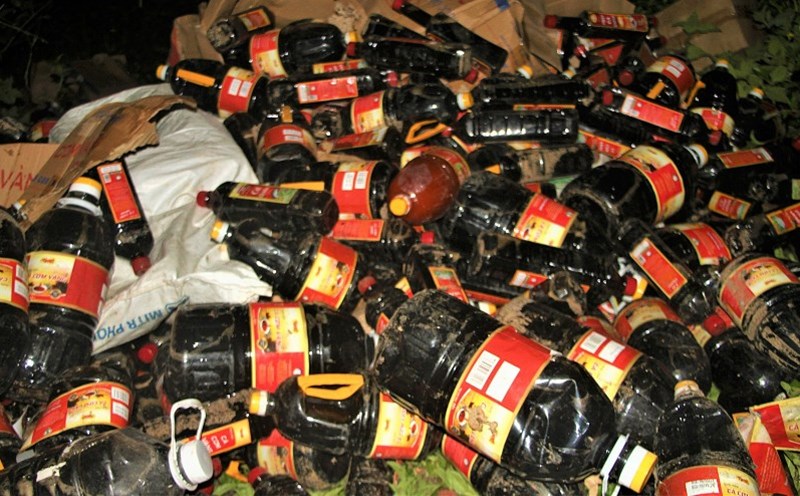In recent years, the Vietnamese bakery market has witnessed fierce competition as domestic businesses not only compete with each other but also have to regain market share from foreign brands. Or compete to become partners supplying cakes to fast food stores, restaurants, coffee shops... to maintain stable growth.
The pressure from this competition forces both domestic and foreign businesses to compete in innovation, finding their own way to maintain profits and market share. From opening more chains of stores to expand the market, to developing new business models: Combining cakes with tea and coffee.
Purely pastry shops combine tea and coffee business. On the contrary, genuine coffee and tea shops also develop the pastry business such as Highlands Coffee, Starbucks, The Coffee Bean, The Coffee House, Cong, Aha, Phuc Long...
According to research by iPOS.vn, in 2024, the market value of the F&B industry in Vietnam is expected to increase by 10.92% compared to 2023 and reach over 655 trillion VND. It is forecasted that from now until 2027, the revenue structure will not change much as independent F&B stores will still dominate with 93.9% market share.
This study also shows that the number of restaurants/cafes in Vietnam in 2023 will reach 317,299 stores, an increase of 1.26% compared to the previous year. With this growth momentum of the F&B market, the Vietnamese baking ingredients industry promises to continue to have impressive developments. However, the pie may be divided again when foreign businesses enter strongly in the near future.
Sharing at the announcement of Nhat Huong Group's new positioning and brand identity system on December 10, 2024, Ms. Vu Thi Hoai Son - CEO of Nhat Huong Group shared that the Vietnamese bakery industry currently has a lot of potential but also faces many challenges, especially competition with foreign brands.

"Looking at the F&B market in general, including the milk tea and coffee industry, we can see that Vietnam's market is increasingly facing fierce competition from "neighbors" with strong management and financial skills and advanced technology.
Similarly, the bakery industry is also facing difficulties. Domestic confectionery businesses can hardly compete successfully with foreign rivals when weaknesses and limitations have not been completely overcome, such as weak distribution networks, undiversified product portfolios, and uninnovative designs... In particular, domestic businesses do not have outstanding financial strengths and operational experience like foreign businesses," Ms. Vu Thi Hoai Son shared.
According to Ms. Vu Thi Hoai Son, in order to exploit the consumption potential of the domestic market, confectionery businesses must have a long-term investment strategy and vision in affirming the Vietnamese brand. In addition, it is necessary to focus on investing in machinery, production lines, and modern technology to improve quality and diversify products, change designs, and have a reasonable pricing strategy... to meet the needs of many different consumer groups.










